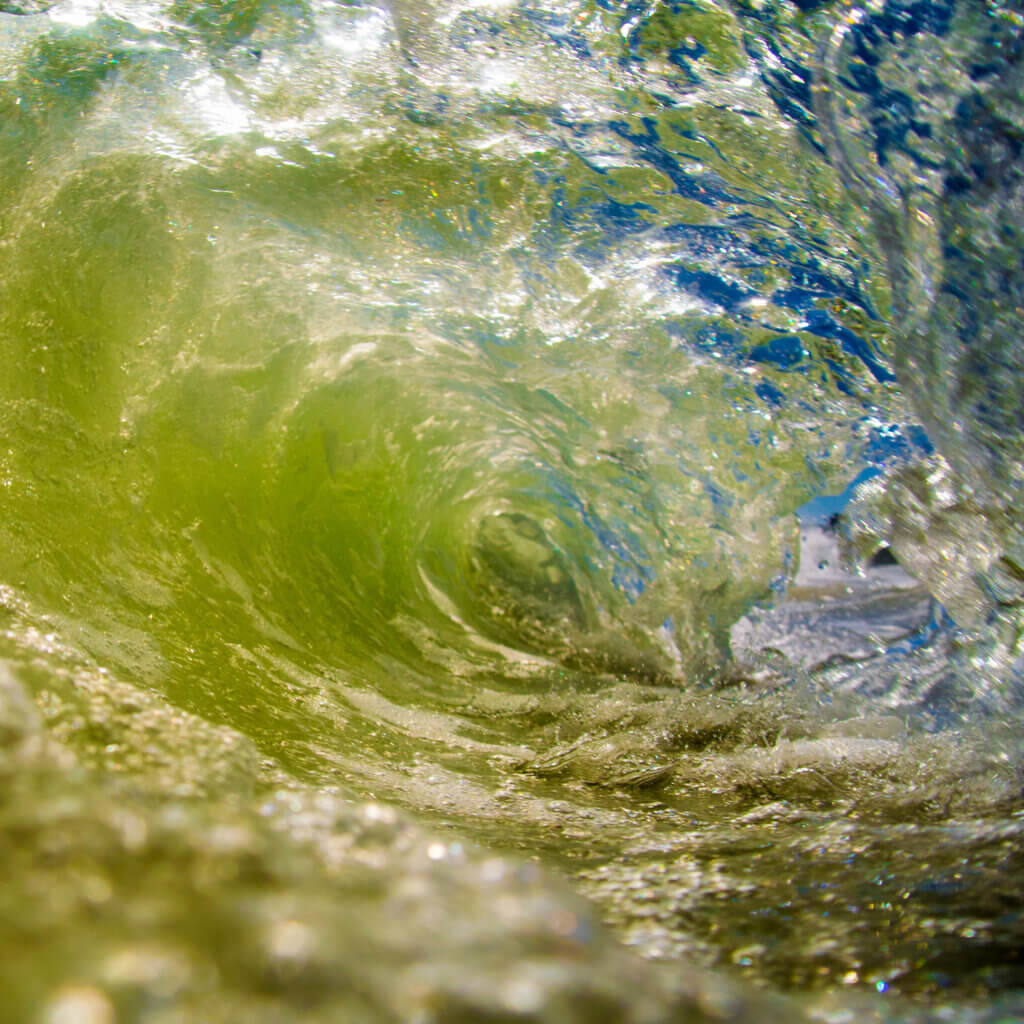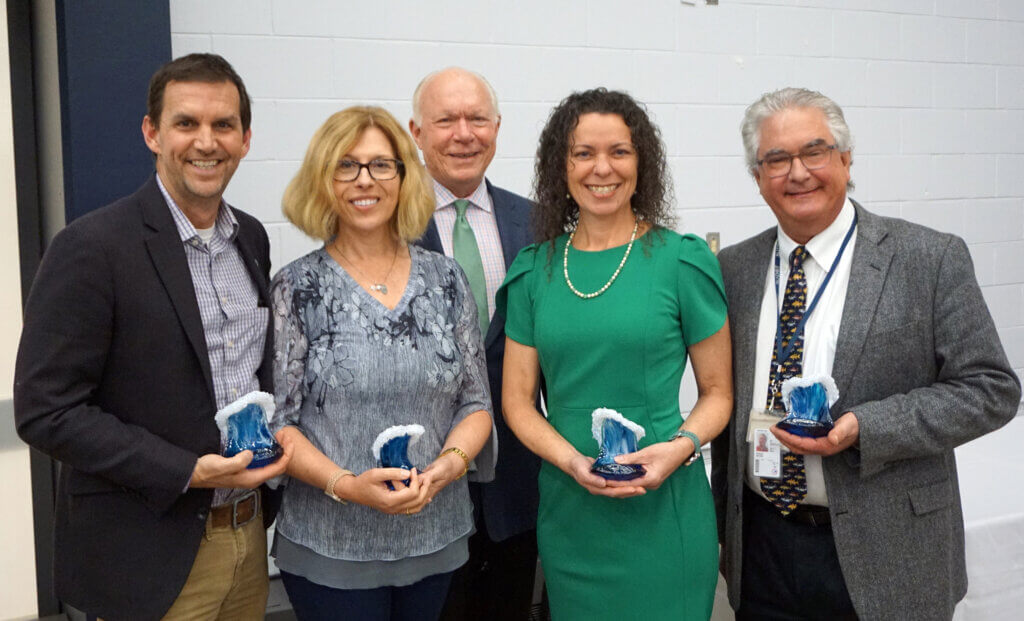
The Monmouth University Urban Coast Institute (UCI) recently presented State, Coastal and Ocean Leadership awards to four individuals who have worked for several years to assure both safety and accessibility on state waterways and the protections and restoration of critical coastal habitats, parks and refuges. UCI Director Tony MacDonald honored the recipients at a March 13 ceremony held in conjunction with the New Jersey Coastal and Climate Resilience Conference, co-hosted by the New Jersey Department of Environmental Protection (NJDEP) and the New Jersey Coastal Resilience Collaborative at Monmouth University from March 12-14.
The 2024 honorees included New Jersey Department of Transportation (NJDOT) Office of Maritime Resources Manager Genevieve Clifton, NJDOT Dredging Program Manager Scott Douglas, NJDEP Assistant Commissioner Dave Golden, and Edwin B. Forsythe National Wildlife Refuge Manager Virginia Rettig.
“Many of the pleasures of living and recreating along the New Jersey coast which people take for granted – including boating, maritime commerce, fishing, birdwatching and the conservation of wetlands and coastal habitats – would not be available without the active management, stewardship and leadership provided by these honorees,” MacDonald said. “It is a great pleasure to express our appreciation and publicly acknowledge their work.”
The State, Coastal and Ocean Leadership Awards are part of the UCI’s Champion of the Ocean Award program, which was established in 2005 to honor national, regional and state individuals who have undertaken actions and demonstrated sustained leadership that ensures coasts and oceans are clean, safe, sustainably managed, and preserved for the benefit and enjoyment of future generations. A list of past recipients can be found here.
Genevieve Clifton
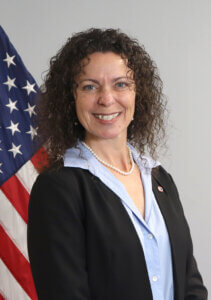
Office of Maritime Resources Manager, New Jersey Department of Transportation
Genevieve Clifton has managed the NJDOT Office of Maritime Resources since 2008 and has been active in marine transportation issues since she was hired as part of the original Maritime Office team in 1997. In 2023, she was asked to lead the Division of Multimodal Services for the Department. Clifton is currently leading the integration of the Department’s maritime program into the Capital Program Management unit, aligning NJDOT construction functions, while continuing to oversee the Federal Highway Administration’s Ferry Boat Program and the U.S. Department of the Interior’s Boating Infrastructure Grant Program. In her expanded role, she is actively advancing maritime freight opportunities that benefit New Jersey’s distinctly multimodal transportation system, is leading the effort toward 100 percent beneficial use of dredged material, and is developing partnerships necessary to implement strategic ecological and resilient coastal benefits, while continuing to lead the strongest state channel dredging program in the nation. She has earned master’s degrees from Seton Hall University in public administration and diplomacy and international relations. Among numerous accolades, Clifton is most proud of having been bestowed a Meritorious Public Service Award from the U.S. Coast Guard in 2021.
Scott Douglas
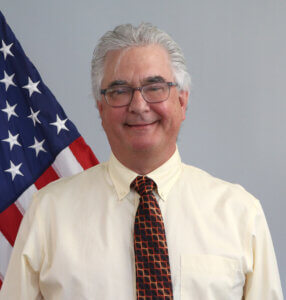
Dredging Program Manager, New Jersey Department of Transportation
Scott Douglas has served as the Dredging Program manager for the NJDOT’s Office of Maritime Resources since 1997. In that time, he has been a staunch advocate for dredging and the beneficial use of dredged materials. He has been a key player on the milestone deepening projects in the NY/NJ Harbor and the Delaware River, and spearheaded the effort to establish Regional Dredging Teams in both ports. Since 2012, he has been a driving force behind the recovery of the New Jersey marine transportation system from the ravages of Superstorm Sandy. To date, the NJDOT has removed over 2 million cubic yards of sediment from the state’s navigation channels, much of which involved utilization of innovative techniques including marsh enhancement and habitat restoration. As the recovery of New Jersey’s coastal navigation system nears completion, Douglas is working with a group of regional stakeholders to craft a framework for managing dredged material in New Jersey’s back bays in a manner that improves coastal resiliency. Douglas holds degrees in zoology and environmental toxicology and has published widely on the topic of dredged material management in books and journals.
Dave Golden
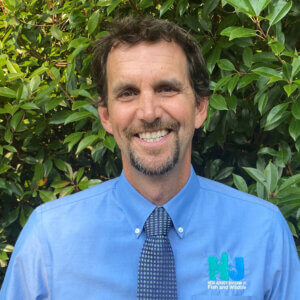
Assistant Commissioner, New Jersey Department of Environmental Protection
Dave Golden serves as the NJDEP’s assistant commissioner administering New Jersey’s Fish & Wildlife Program. In this role, he oversees various state programs protecting and managing fish and wildlife resources and works to expand public access for wildlife-related recreation. Golden began his career with the NJDEP in 2001 working for the Division of Fish and Wildlife’s Endangered and Nongame Species Program. Since that time, he has taken on various leadership roles and served as the head of N.J. Fish & Wildlife since 2019. He has spent the last decade advancing coastal restoration projects on wildlife management areas along the Atlantic Coast and Delaware Bayshore and has long promoted the beneficial reuse of clean dredge material as one method for enhancing coastal habitats. Golden earned a bachelor’s degree in biology from Kutztown University and holds a master’s degree in ecology from Miami University.
Virginia Rettig
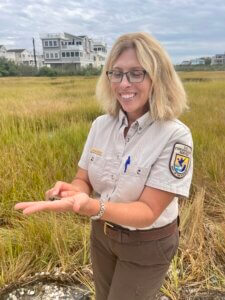
Refuge Manager, Edwin B. Forsythe National Wildlife Refuge
Virginia Rettig began working for the U.S. Fish and Wildlife Service in the Lafayette, Louisiana, Ecological Services Field Office in 1995. She then moved to the refuge division and worked at the Southeast Louisiana Refuges complex, Cat Island National Wildlife Refuge, and Cape May National Wildlife Refuge. She spent two years as an assistant refuge supervisor in the Regional Office in Hadley, Massachusetts, before heading to the Edwin B. Forsythe National Wildlife Refuge in 2010. She enjoys creating habitat for wildlife in her garden and traveling to explore natural areas. She volunteers to support teachers and STEM in South Jersey through the American Association of University Women. She received a bachelor’s degree in environmental and forest biology in 1991 from the College of Environmental Science and Forestry in Syracuse and a master’s degree in wildlife biology in 1994 from Louisiana State University working on use of agricultural fields by shorebirds.

